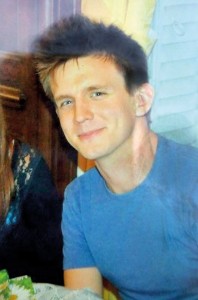News
Fisherman describes last tragic moments of British journalist before crocodile attack
A Panama village fisherman yesterday explained how he saw one of Britain’s top financial journalists waving his hand in distress before being attacked by a crocodile and drowned in a lagoon.

The lagoon at Panama: Calm waters now flow over a terrible tragedy
Velupillai Sadanandan, 65, told the police that he was in his fishing hut when he suddenly heard a cry and looked towards the lagoon.
“I shouted to alert the other fishermen and rushed to the location, by that time the tourist had disappeared,” he said.
Ampara’s Judicial Medical Officer A. Illangovan yesterday returned a verdict that 24-year-old Paul McClean’s death was caused by drowning though there were marks of an attacks of a reptile (crocodile).
The body of Mr McClean was released last evening.
Six Navy men retrieved the body of the Journalist on Friday morning after several attempts were made to locate the body in the lagoon, Navy Media Spokesman Lankanatha Disanayake said.
The horrible tragedy occurred at Panama, six kilometres south of Arugam Bay.
The Navy spokesman said two navy officers and four divers had joined rescue mission the next day morning, towed an anchor connected to a speed boat to get the body out of the mud but they were unsuccessful in the first attempt.
“We took a different approach and the team then circled the boat high speed creating a current to sweep away the mud after confirming the place where the British journalist was last seen,” he said.

Paul McClean’
The body was found horizontally stuck in eight feet of mud, with the right leg having puncture wounds and the heel twisted.
The body was handed over to Panama police for further investigations and taken to Ampara for the post mortem examination.
A Panama police officer said the tragedy had taken place between 2.30 pm and 3.15 pm on Thursday.
Meanwhile, a British High Commission spokesman said they were in touch with the victim’s family.
A surfer explained that the place where the tragedy took place was close to the ‘Crocodile Rock’ which is known to be infested with crocodiles and is usually avoided by the area’s people.
He said the British Financial Times journalist had reportedly gone on surfing earlier and returned to the beach and thereafter had gone inland towards the lagoon to relieve himself.
He had returned to wash his hands when the crocodile grabbed him.
The surfer said that though politicians claimed money had been allocated to build toilets for the tourists, there were no sanitation facilities.
He said that in future the surfing community would place warning signs at dangerous areas of Arugam Bay to avoid such tragedies. This was the first crocodile attack in the area.
Mr McClean was a journalist at Britain’s Financial Times and a graduate of Oxford University.
He joined the FT two years ago under a graduate scheme.
Mr McClean’s colleagues sent twitter messages and posted tributes on Facebook in honour of the young journalist.
At the Financial Times, tributes were written by its reporters. One of them, Lionel Barber, said, “Paul was Natural. He had charm curiosity and an attention to detail — the ingredients for a top reporter. He was family. We will miss him sorely.”
“Our thoughts are with his family, friends and loved ones,” said James Lamont, the FT’s Managing Editor. “We are in touch with them, doing all we can to help during this difficult time.”
The Brussels bureau Chief Alex Barker in his tribute said it was Mr McClean who first worked out exactly how many international treaties Britain would need to renegotiate after Brexit
He also worked in the Paris office of WAN-IFRA as an editorial intern in May 2014. He was in Paris as an Oxford University student on his year abroad — mandatory for Students studying a foreign language.
He worked as a trainee journalist/ blogger writing articles for the WAN-IFRA blog.
The inquest is due to be held tomorrow.

